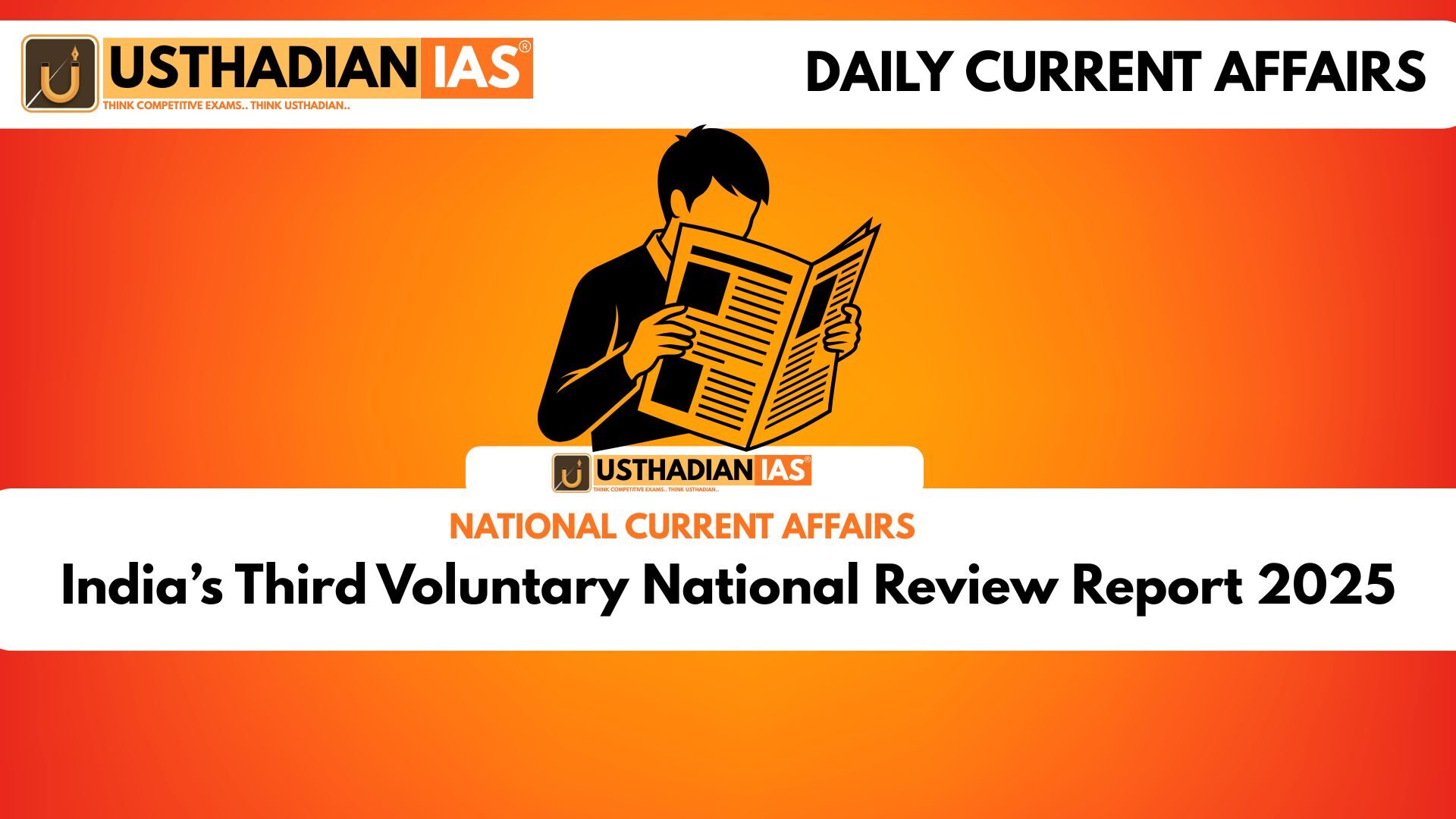India’s third submission
India’s Third Voluntary National Review Report 2025: India has released its third Voluntary National Review (VNR) Report 2025 through NITI Aayog, following earlier reports in 2017 and 2020. The report evaluates India’s progress in meeting the 17 Sustainable Development Goals (SDGs) set by the United Nations under the 2030 Agenda.
Static GK fact: The United Nations adopted the SDGs in 2015 to succeed the Millennium Development Goals (MDGs).
Whole-of-nation approach
The report highlights India’s whole-of-government and whole-of-society approach. Central ministries, state governments, local bodies, and civil society organizations are aligned with the SDG framework. This ensures that development goals are mainstreamed into policy and governance structures.
Federalism and state engagement
India has adopted a model of cooperative and competitive federalism in achieving the SDGs. The SDG India Index, published by NITI Aayog, ranks states and union territories on their progress. This promotes healthy competition and accountability among states.
Static GK fact: The first SDG India Index was launched by NITI Aayog in 2018.
Localization of SDGs
The localization model plays a crucial role. Districts, blocks, and village panchayats are encouraged to integrate SDGs into their planning processes. This bottom-up framework allows grassroots implementation and reflects the diversity of India’s development challenges.
Innovation and digital infrastructure
The report emphasizes leveraging Digital Public Infrastructure (DPI) such as Aadhaar, UPI, DigiLocker, and CoWIN. These platforms expand access to services in areas like banking, health, and social security. By integrating technology into welfare delivery, India ensures inclusiveness and efficiency.
Static GK Tip: UPI (Unified Payments Interface) was launched in 2016 by NPCI and has become a global model for digital transactions.
Achievements highlighted
Key progress areas include poverty reduction, renewable energy capacity, women-led development, financial inclusion, and expansion of social protection schemes. The VNR notes India’s leadership in renewable energy expansion, particularly through the International Solar Alliance (ISA).
Static GK fact: The International Solar Alliance (ISA) was jointly launched by India and France in 2015 at the Paris Climate Conference (COP21).
Global contribution
India’s VNR 2025 also reflects its global commitment to sustainable development. Initiatives like LiFE (Lifestyle for Environment) promote sustainable consumption, while India’s G20 Presidency in 2023 advanced the cause of SDG financing and climate action.
Static Usthadian Current Affairs Table
India’s Third Voluntary National Review Report 2025:
| Topic | Detail |
| Report Released | Voluntary National Review (VNR) Report 2025 |
| Released By | NITI Aayog |
| India’s VNR Count | Third (after 2017 and 2020) |
| Key Focus | Sustainable Development Goals (SDGs) |
| Federalism Approach | Cooperative and competitive federalism via SDG India Index |
| Localization | District, block, village-level adoption of SDGs |
| Innovation | Use of Digital Public Infrastructure (Aadhaar, UPI, DigiLocker) |
| Global Initiative | International Solar Alliance (ISA) launched in 2015 |
| UN Adoption of SDGs | 2015 (successor to MDGs) |
| India’s Global Effort | LiFE initiative and G20 Presidency 2023 focus on SDGs |








